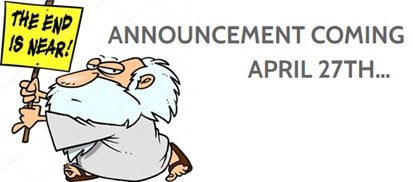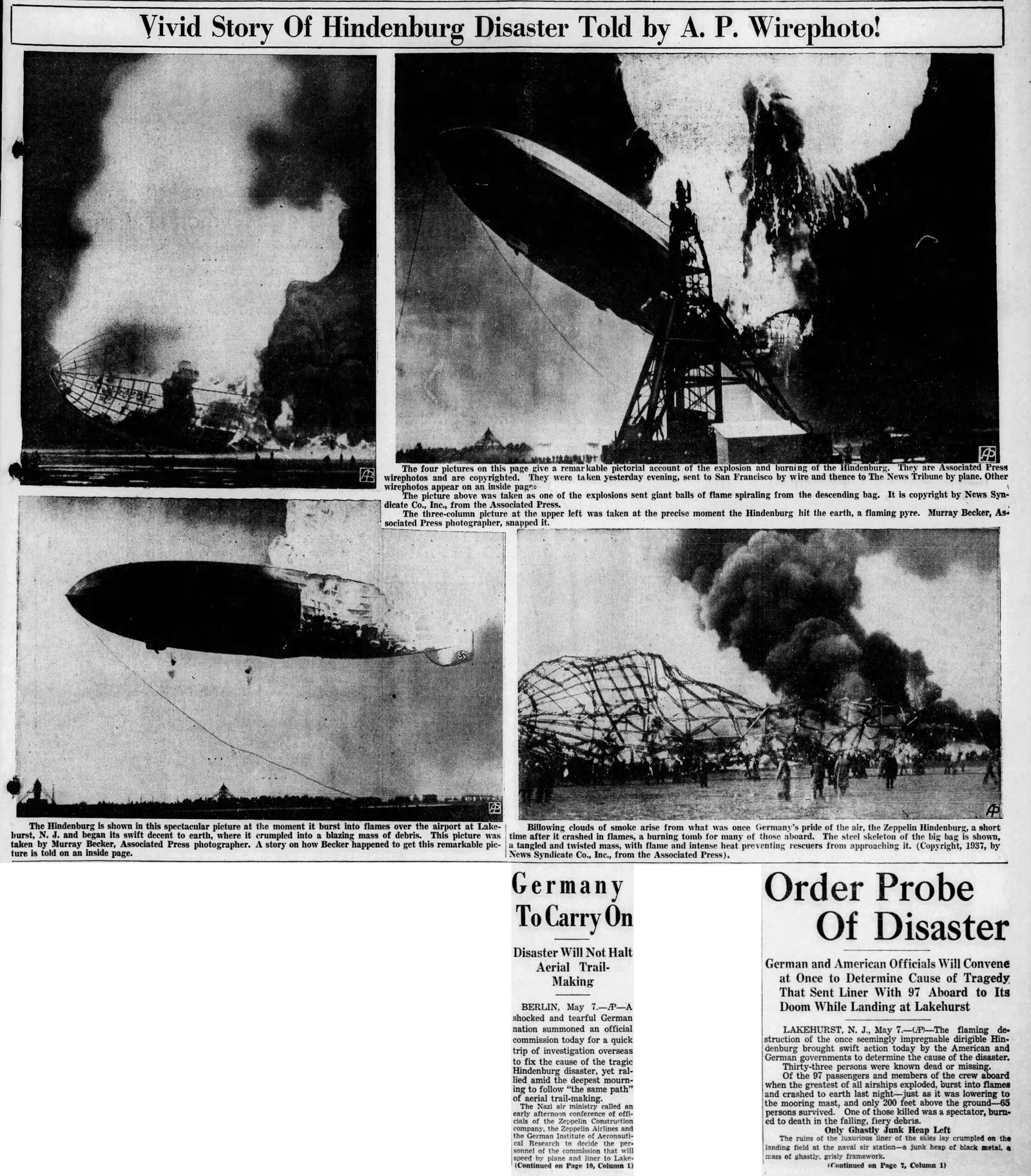News reporter Herbert Oglevee “Herb” Morrison May 14, 1905 – January 10, 1989 was an American radio journalist best known for his dramatic report of the Hindenburg disaster, a catastrophic fire that destroyed the LZ 129 Hindenburg zeppelin on May 6, 1937, killing 36 people. Morrison was a reporter for WLS Radio in Chicago.
 May 6, 1937, Manchester Township, New Jersey — The German passenger airship LZ 129 Hindenburg caught fire and was destroyed during its attempt to dock with its mooring mast at Naval Air Station Lakehurst.
May 6, 1937, Manchester Township, New Jersey — The German passenger airship LZ 129 Hindenburg caught fire and was destroyed during its attempt to dock with its mooring mast at Naval Air Station Lakehurst.
Herb Morrison / WLS Chicago – Hindenburg Disaster (22:06)
Click on articles to enlarge
May_7__1937
Thanks to Bruce Caplan for assisting on this post.





Jason, I agree, that it would have been fascinating to hear an on the spot, narration of the Titanic’s demise! It’s interesting that one of the very first to hear that the Titanic slammed an iceberg was David Sarnoff who at that time, realized how important wireless communications would become. Sarnoff in 1912 was an employee of the Marconi Corporation. Afterward he founded RCA and became instrumental in the spread of modern radio and later television.
That must have been excruciatingly scary to be watching that live.
Imagine a live broadcast of the sinking of the Titanic. Might have happened if radio had been developed earlier.
Herb Morrison deserved a Pulitzer prize for his very serious, yet humane, reporting…There is hardly any info on the guy’s life, after this event…he served in the Army during WW2, and then went into TV stuff, actually being in charge of a fledgling TV station in the early 50s…but there is not much of anything about his later years, personal life,etc. One interesting thing–his natural voice was much lower than what we hear on most recordings. His engineer was using a new type of recording device, that mistakenly was running about three degrees off of where it should have been running…there is a speed-corrected version of his famous commentary, and he indeed had a more baritone voice. Also, the newsreels of the day originally had none of his audio attached–eventually his recorded comments were matched to the films–of which there were four. But none of those films actually captured the very beginning of the fire!…the actual beginning of the conflagration is still being debated…Morrison lived to be 83yo.
This is the type of equipment that was used: http://www.prestohistory.com/Presto.htm.
This recording is pretty incredible when you realize they were out there toting around a recording lathe. While Morrison was saying, “Get this, Charlie!”, the engineer had to carefully drop the needle or it would have gone all the way through the wax and ruined that portion of the recording.
Jason, it’s interesting that the radio shows of the 40’s and 50’s often worked their commercials into the general script. Bill Goodwin on the George Burns and Gracie Allen show would suddenly have a desire for a cup of Maxwell House Coffee. For the next minute he would tell Gracie and whoever was in earshot the wonderful virtues of the product. There would be a lot of humor too!
One of the most interesting radio shows was Martin Kane Private Eye and it was sponsored by a tobacco company. In the middle of trying to solve a murder case, every week, William Gargan the star of the show would enter a tobacco store and fill up his pipe. An unfortunate sidelight regarding Gargan,– at the fairly young age of 53, he developed throat cancer and had to have his larynx removed. This ended the great actors radio career.
Morrison was plugging the airline, maybe it sponsored the broadcast as well as helping the WLS team make the connections to New Jersey. As for paid advertising in newspaper, I have seen radio station ads dating back to 1929.
Having the entire broadcast of WLS reporter Herb Morrison gave this story more perspective.
Great Post!
Herb Morrison and his amazing 1937, firsthand account of the Hindenburg Disaster! Radio reporting at its very best!